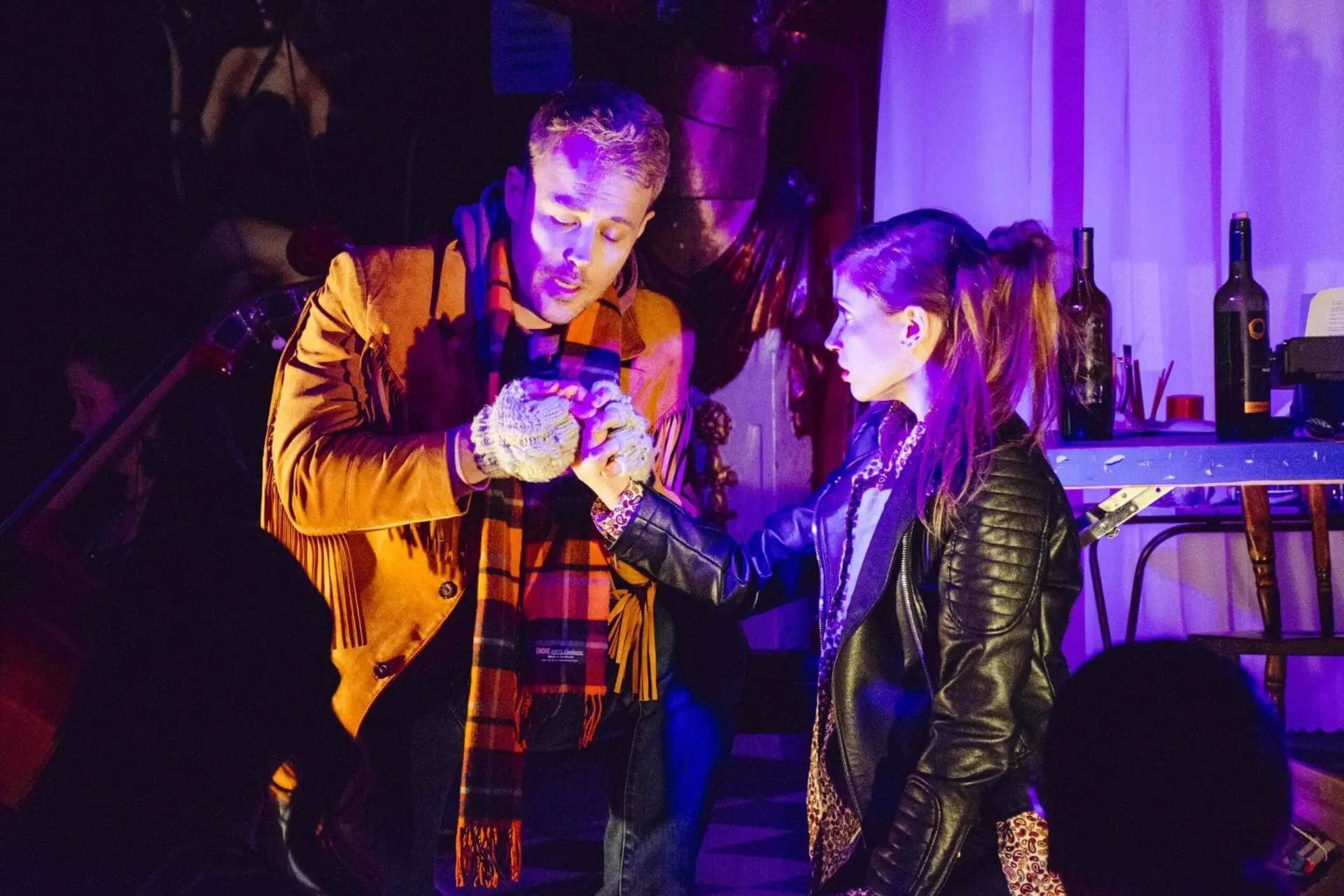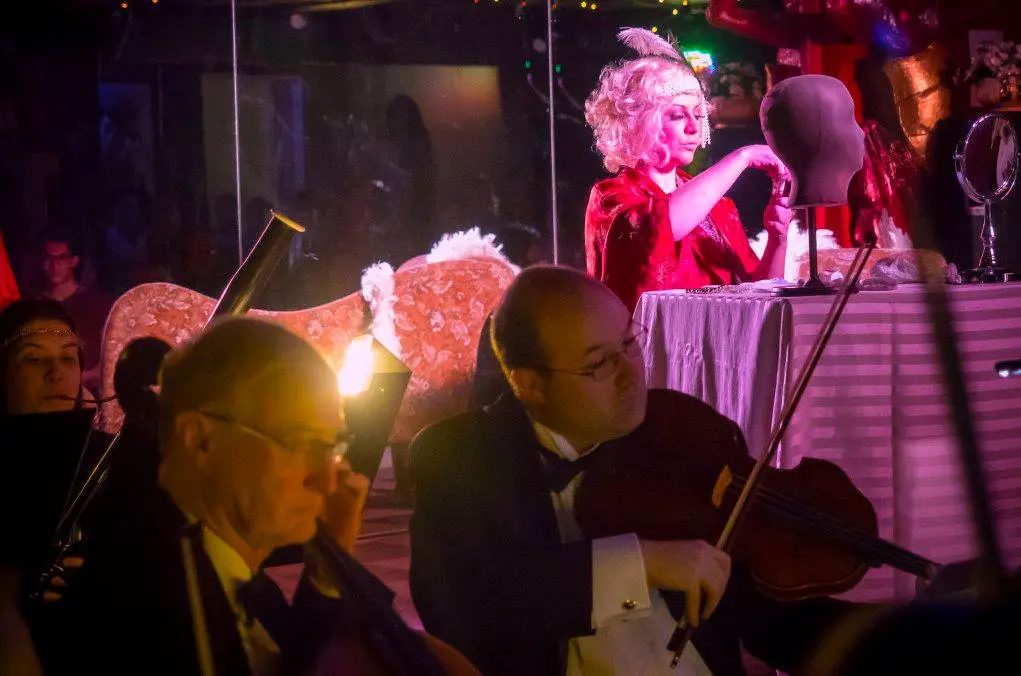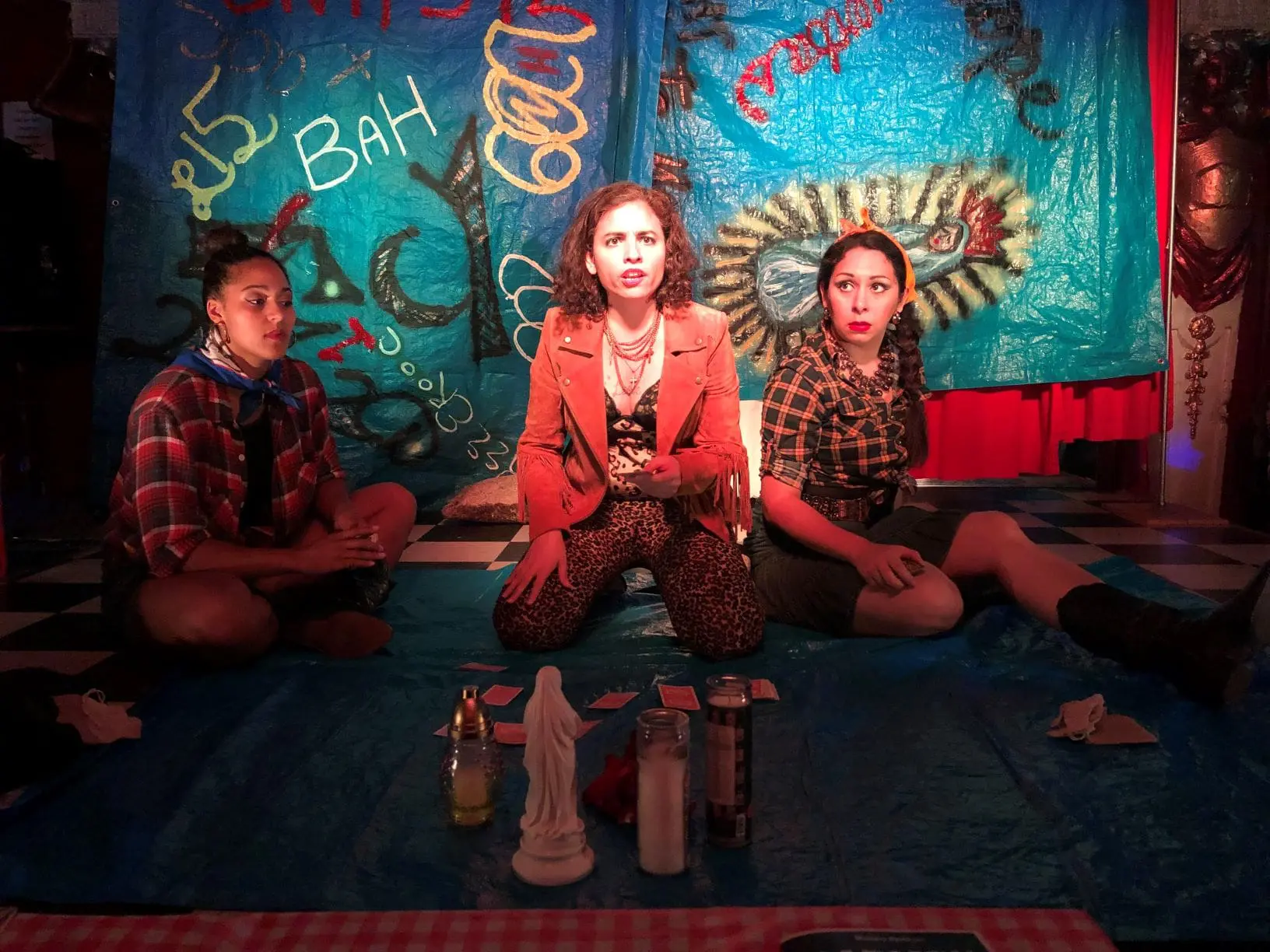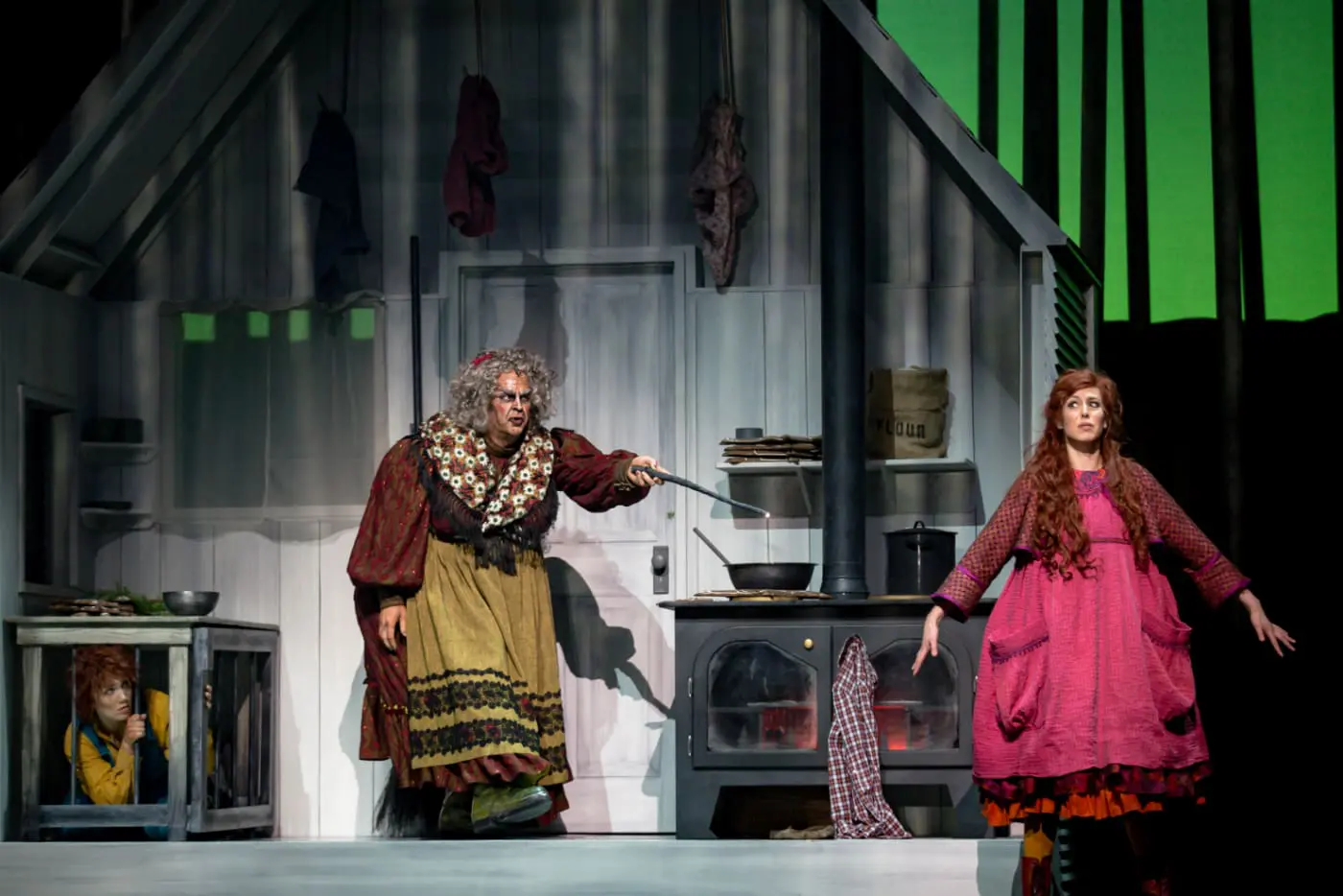Edmonton’s Mercury Opera prides itself on being a maverick enterprise, taking grand opera into alleys and subway corridors, arid barrens and inner-city parks. It once produced Puccini’s Il tabarro on a docked riverboat.
Last year, Mercury Opera staged La traviata in a legendary downtown strip joint, Chez Pierre’s Cabaret, and clearly the small, dimly lit peeler bar has wormed its way into company founder Darcia Parada’s entrepreneurial and artistic imagination. Once again, Chez Pierre was the venue for her latest production, the perennially staged La Bohème, musically underpinned by a small supporting cast of professional and amateur musicians tucked away in a dark corner to the left of the main performance area. The six-piece ensemble was led by Adam Szmidt, with considerable help from pianist Spencer Kryzanowki, who more than ably anchored the band for this small-scale Puccini.
What this production (running ‘til Mar. 9), lacked in orchestration and spatial and theatrical amenities, it more than made up for in its unique emotional penetration. Sitting sometimes within a foot or two of a character singing this operatic favourite in full voice gave new meaning to the word verismo. No binoculars required here to see the singers’ engagement with the sad story of material destitution and personal solidarity. The table where Rodolfo typed in Act I was as close to my table as the kitchen sink would be to the dining space in a tight apartment.

Adam Fisher (Rodolfo), Lukas Johan (Marcello) and Roland Burks (Colline) in Mercury Opera’s La Bohème. Photo: Anna Kuelken.
The setting of this Bohème was 1979 New York, where, in her director’s note, Parada says she lived in a squalid part of the city during the AIDS epidemic. In this bare-bones production, Mimì dies on three orange plastic chairs in a hospital waiting room, rather than under the usual blankets. Parada used every nook and cranny in the seedy cabaret, having singers enter from a sound booth and the customer exits, incorporating the bar and a wall phone into her fluidly directed show.
Some of the young singers in this production have substantial bios, with engagements at houses in Houston, New York, Toronto, Frankfurt, as well as western Canada’s larger companies. Others have opera workshops, cruise line gigs, and smaller outfits such as Calgary’s Cowtown Opera to boast about in their fledgling careers. None of them, though, came across as callow in this tightly staged, somewhat abridged version of Puccini’s work. (There were no children scampering about the strippers’ platform in Act II, for instance—only a few bars from their scene tacked to the end of the act).
Tenor Adam Fisher, who has had leading roles with Edmonton Opera, Pacific Opera Victoria and Opera Atelier, sang Rodolfo. His approach wasn’t exactly restrained, but the passion of the suddenly-smitten writer wasn’t writ operatically large either. His repeated cries of Mimì at the end, too, were more introverted than I’ve heard before.
Michaela Chiste debuted with Mercury Opera last summer as Frasquita in a one-off performance of Carmen in the badlands of Drumheller. Her Mimì in this production had a fine balance of fragility and hopefulness. Her singing was clear and controlled, and I was impressed with her periodic, convincing bronchial spasms. Chiste is slender, and that helped capture the image of the gradually deteriorating woman who had lived from hand to mouth before her demise.
The quirkiest and very effective reimagining of the Bohemian story included making Schaunard (bass-baritone Ian Fundytus) into a towering transvestite. Fundytus milked the role but didn’t disrupt the ensemble spirit of the show. Parada gave him the spotlight to open Act II, set in a pool hall. He appeared alone, centre stage, dressed in drag, complete with mink stole, and flirtatiously sang “Santa Baby” in Italian. In the final scene, though, Fundytus rivaled Chiste for heartfelt pathos, and having a front row seat made his affecting performance all the more dramatic.

Lukas Johan (Marcello), Ian Fundytus (Schaunard) and Roland Burks (Colline) in Mercury Opera’s La Bohème. Photo: Anna Kuelken.
Every Bohème needs a sexy, dangerous Musetta, and soprano Andrea Gedrasik, making her Mercury Opera debut, gave us that. She sang with attitude galore. Her contempt for the men her life was palpable, and when she first arrived, wearing a very low-cut satin number, I admit I thought the strip club might revert to its normal function for a few moments.
The other members of the cast—baritone Lukas Johan as Marcello and bass-baritone Roland Burks as Colline—more than held their own. Burks, especially, sounded like a singer who is used to getting more space to display his talent.
















